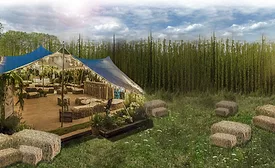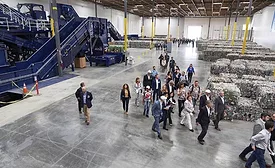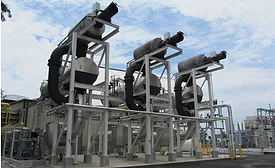Home » Keywords: » zero waste
Items Tagged with 'zero waste'
ARTICLES
Beverage companies taking steps to prioritize ESG initiatives
Read More
Beverage industry ups game in fight to save the planet
BrewDog sustainable investments bring operations to carbon negative
October 22, 2020
Sustainability a cornerstone for beverage plants
Companies adopt water reuse, recycled materials and zero-waste practices
November 8, 2019
How to address waste issues in beverage operations
Containment must be part of solution in packaging processes
December 18, 2018
PepsiCo Recycling expand Zero Impact Fund
Program part of Performance with Purpose agenda
September 19, 2017
CBA releases 2016 sustainability report
Craft brewing group addresses carbon intensity, waste prevention, community support
April 25, 2017
ABA celebrates America Recycles Day
Highlights zero-waste achievements in beverage market
November 15, 2016
Beverage plants increase energy efficiency, adopt zero waste
Plants diversify their energy profile
November 14, 2016
PepsiCo launches 2025 Sustainability Agenda
Agenda designed to meet changing consumer, societal needs
October 17, 2016
Elevate your expertise in the beverage marketplace with unparalleled insights and connections.
Join thousands of beverage professionals today. Shouldn’t you know what they know?
JOIN NOW!Copyright ©2026. All Rights Reserved BNP Media.
Design, CMS, Hosting & Web Development :: ePublishing








